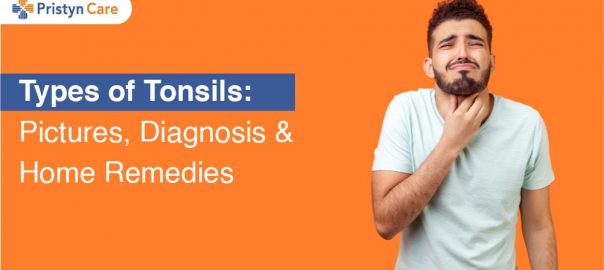![]() Views: 46,172
Views: 46,172
Difference Between Throat Cancer and Tonsillitis
Dedicated Support at Every Step!
Our Doctors are available 24 hours a day, 7 days a week to help you!
Table of Contents
What is Throat Cancer?
The development of cancerous cells at the back of the mouth, voice box, tonsils, the base of the tongue, sinus and nasal cavities, salivary glands, soft palate and lymph nodes. Out of all the cancers types, the most common one is tonsil cancer. Classified as head and neck cancer, it can also be categorized as throat cancer and oropharynx cancer.
Types of Throat Cancer
According to the Cancer Treatment Centers of America, there are several types and sub-types of throat cancer. These are-
- Squamous cell carcinoma- This is the type of cancerous cells that develop in the cells lining the throat.
- Adenocarcinoma- The glandular cells of the throat become malignant.
- Sarcoma- This is a type of throat cancer that develops in the neck muscles.
- Laryngeal- This cancer develops in the larynx or voice box
- Pharyngeal cancer- These are three types-
Nasopharynx that occurs in the upper part of the throat
Oropharynx develops in the middle part of the throat
Hypopharynx occurs in the lower part of the throat including the larynx.
Causes of throat cancer
The following factors increase the chances of throat cancer-
- Eating a diet that is low in fruits and vegetables increases the risk of throat cancer
- Smoking cigarettes, pipes or cigars also increases the likelihood of cancer
- Drinking alcohol in excessive amounts act as a contributing factor
- Men who are above 50 years of age are at a higher risk of developing throat cancer
- People with HPV or HIV are more likely to develop throat cancer
Symptoms of Throat Cancer
The first sign of cancer developing in the throat is swelling of one tonsil larger than the other along with persistent soreness in the throat. However, in most cases, the person is unable to feel any sign or symptom even after they are diagnosed. An individual is diagnosed with throat cancer when the doctor treats them for other throat problems.
According to the American Cancer Society, a person should visit an ENT specialist if he/she has a sore throat for more than two weeks.
Depending on the extent of cancer spreading in the throat, there can be some additional symptoms of throat cancer-
- Visible lump in the neck
- Fatigue
- Change in the voice
- Bleeding from the gums
- Sudden weight loss
- Ear pain
- Jaw pain
- White patches in the throat
- Difficulty breathing
- Persistent headache
- Swelling of the eyes, jaw throat or neck
- Difficulty swallowing
However, these symptoms also develop when there is another condition in the throat such as tonsillitis. Hence, if a person experiences any one or a combination of the above symptoms then it doesn’t necessarily mean that they are suffering from throat cancer.
Diagnosis of Throat Cancer
Once the doctor questions about the medical history of an individual, they can recommend the following diagnostic tests to confirm about the presence of cancerous cells-
- Blood and urine tests to check the white blood cell count
- Imaging tests that include a CT, MRI or X-ray to detect the presence of malignant cells as well as to check the severity of the condition
- Laryngoscopy in which a doctor passes a thin tube with a light and camera mounted on the top inside the throat
- Biopsy in which tissue is examined to confirm the presence of cancerous cells under a microscope.
Treatment of Throat Cancer
After the confirmation of cancer, on the basis of the type and severity of the condition, the doctor recommends the following treatment options-
- Chemotherapy
- Immunotherapy
- Radiation therapy
- Surgery
- Targeted therapy
What is Tonsillitis?
Tonsillitis is the infection of the tonsils which are located at the back of the throat. It is contagious in nature which means it can spread from person to another very easily.
Types of Tonsillitis
There are three types of tonsillitis that can occur in adults-
- Acute tonsillitis- This type of tonsillitis lasts for ten or more days. The most common type of tonsillitis in children.
- Chronic tonsillitis- Some of the symptoms include sore throat, bad breath, tenderness of the lymph nodes.
- Recurrent tonsillitis- People who develop tonsillitis 5 to 7 times in a year are said to suffer from recurrent tonsillitis.
Causes of Tonsillitis
The tonsils get infected due to viral or bacterial attack. In addition to these, there are some risk factors that can make an adult prone to tonsillitis-
- Children are more prone to suffering from tonsillitis when they spend time with their family members already suffering from this condition
Symptoms of Tonsillitis
Some of the common symptoms of tonsillitis in adults include-
- Swelling and redness of the tonsils
- Sore throat
- White patches in the throat
- Blisters in the throat
- Difficulty swallowing
- Something stuck in the throat
- Bad breath
- Terrible headaches
- Lethargy
- Fever
- Fatigue
Diagnosis of Tonsillitis
The doctor physically examines a patient for any spots or swelling to confirm tonsillitis. Furthermore, he or she asks about the patient’s medical history. Lastly, they prescribe throat swab tests and blood test to confirm the presence of any infectious agents.
Treatment of Tonsillitis
Some of the home remedies that can help in getting relief from the symptoms of tonsillitis include-
- Drinking lots of fluids
- Gargling with warm water
- Taking medicated lozenges
- Taking enough rest
- Avoiding irritants as much as possible
In addition to these remedies, there are some medications that can help in curing tonsillitis- antibiotics and painkillers.
However, when tonsillitis causes complications, Pristyn Care ENT doctors recommend taking out the tonsils surgically in a procedure known as tonsillectomy.
Throat Cancer VS Tonsillitis
| Throat Cancer | Tonsillitis |
| The development of cancerous cells at the back of the mouth, voice box, tonsils, the base of the tongue, sinus and nasal cavities, salivary glands, soft palate and lymph nodes. | Tonsillitis is the infection of the tonsils which are located at the back of the throat. |
| Not contagious in nature | Contagious in nature |
| Types include Squamous cell carcinoma, Adenocarcinoma, Sarcoma, Pharyngeal cancer, Laryngeal | Types include acute, chronic and recurrent |
| Risk factors are smoking, drinking alcohol, eating an unhealthy diet and being male over 50 years | Causes include viral or bacterial infection, more common in children |
| Symptoms are cough, Changes in your voice, such as hoarseness or not speaking clearly, Difficulty swallowing, Ear pain, A lump or sore that doesn't heal, A sore throat, Weight loss | Swelling and redness of the tonsils, Sore throat, White patches in the throat, Blisters in the throat, Difficulty swallowing, Something stuck in the throat, Bad breath, Terrible headaches |
| Diagnostic tests are blood tests, imaging tests and biopsy | Physical examination followed by blood tests |
| Treatment includes chemotherapy, surgery, immunotherapy, radiation therapy | Treatment includes medicines or in severe cases a tonsillectomy |
Therefore, it is recommended that in case you have throat pain or feel tired throughout the day, consult with an ENT doctor without fail. You can also book an appointment with Pristyn Care ENT specialist for proper diagnosis.










